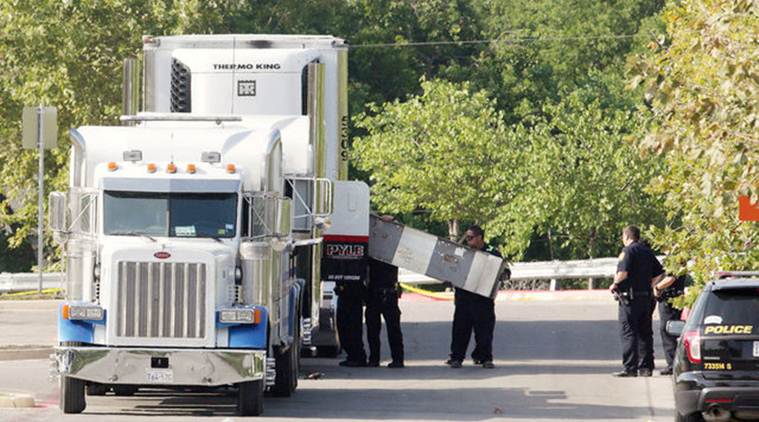Trump Assigns White House Team to Target Iran Nuclear Deal, Sidelining State Department
Unhappy with Tillerson over Iran, the president is turning to trusted aides.
After a contentious meeting with Secretary of State Rex Tillerson this week, President Donald Trump instructed a group of trusted White House staffers to make the potential case for withholding certification of Iran at the next 90-day review of the nuclear deal. The goal was to give Trump what he felt the State Department had failed to do: the option to declare that Tehran was not in compliance with the contentious agreement.
“The president assigned White House staffers with the task of preparing for the possibility of decertification for the 90-day review period that ends in October — a task he had previously given to Secretary Tillerson and the State Department,” a source close to the White House told Foreign Policy.
The agreement, negotiated between Iran and world powers, placed strict limits on Tehran’s nuclear program in return for lifting an array of economic sanctions.
On Tuesday, Trump relayed this new assignment to a group of White House staffers now tasked with making sure there will not be a repeat at the next 90-day review. “This is the president telling the White House that he wants to be in a place to decertify 90 days from now and it’s their job to put him there,” the source said.
FP spoke with three sources who were either invited to take part in the new process or were briefed on the president’s decision on certification. All described the new process as a way to work around the State Department, which the president felt pushed certification forward by giving him no other options.
All three sources said Trump specifically asked Tillerson at the previous review to lay the groundwork for decertification — which the sources said Tillerson failed to do.
Trump “is resolved to not recertify deal in 90 days,” said a second source with detailed knowledge of this week’s meeting and the aftermath.
The three sources said it’s too early to tell how this will play out, stressing that all that is certain is that the staffers have gotten a new assignment and there won’t be any more details until after the first meeting, tentatively scheduled for early next week.
Trump’s decision follows months of friction between the White House and State Department over how to handle the Iran nuclear agreement, which Trump denounced as a presidential candidate. The administration was mired in similar divisions in April, when it had to decide whether to certify that Iran was complying with the deal. Every 90 days, the United States has to declare whether Iran is abiding by the agreement and whether sanctions that were waived should remain lifted.
On Monday morning, work was on track for the administration to again certify that Iran was meeting the necessary conditions, but the president expressed second thoughts around midday. A meeting between Trump and Tillerson that afternoon quickly turned into a meltdown.
A third source with intimate knowledge of that meeting said Steve Bannon, the White House chief strategist, and Sebastian Gorka, deputy assistant to the president, were particularly vocal, repeatedly asking Tillerson to explain the U.S. national security benefits of certification. “They repeatedly questioned Rex about why recertifying would be good for U.S. national security, and Rex was unable to answer,” the source said.
“The president kept demanding why he should certify, and the answers Tillerson gave him infuriated him,” the source added.
Tillerson’s communications advisor, R.C. Hammond, disputed the account, denying that Tillerson failed to deliver what the president had asked for or that he would be sidelined. “That wouldn’t match up with the conversations the president and secretary had,” he said.
“Not everybody in the room agreed with what the secretary was saying,” Hammond added. “But the president is certainly appreciative that someone is giving him clear, coherent information.”
While Trump has spoken highly of Tillerson in the past, the source close to the White House said, the president was frustrated that the secretary failed to provide him the option not to certify.
“This is about the president asking Tillerson at the last certification meeting 90 days earlier to lay the groundwork so Trump could consider his options,” the first source said. “Tillerson did not do this, and Trump is infuriated. He can’t trust his secretary of state to do his job, so he is turning to the few White House staffers he trusts the most.”
Hammond dismissed this. “Fiction can be fun when you’re an anonymous source,” he said.
At the previous review in April, Trump had asked Tillerson for specific preparations, which included speaking with foreign allies and to make sure they were on board. “Literally Tillerson did none of this,” the source said. “Simply, [Trump] no longer trusts the State Department to do the work he orders them to do, in order to provide him the options he wants to have.”
The two other sources declined to go into specifics about what Tillerson did not do, only stressing that Trump no longer has faith in the secretary, who simply did not carry out an assignment from him.
But it was not only Tillerson who argued for certifying that Iran was living up to the deal. Defense Secretary James Mattis, National Security Advisor H.R. McMaster, and the chairman of the Joint Chiefs of Staff, Gen. Joseph Dunford, also backed the move.
One White House official acknowledged the president’s deep frustration at the options he was presented on the nuclear deal but argued that it was not fair to say Tillerson and the State Department were solely at fault. The White House National Security Council also bears responsibility for overseeing policymaking and preparing options for the president.
“I wouldn’t put all the blame on them,” the official said of the State Department.
Trump, however, was clearly upset that Tillerson told him he had no choice but to certify Iran was in compliance, according to the source, and asked White House staffers to take over. Withholding certification “wasn’t a real option available to me,” Trump reportedly told the staffers. “Make sure that’s not the case 90 days from now.”
Trump may still choose to certify Iran’s compliance at the next deadline, a source said, but he does not want to be in the position of where he was this week, when he was told that he had to certify because no other option was made available.
“He may not decertify, though I think he will,” the source said. “But he wants to make sure he never, ever, ever hears again that he can’t do it.”
The three sources told FP that, as of Friday, several NSC staffers are expected to be involved including top Middle East advisor Derek Harvey; Joel Rayburn, the director for Iraq, Iran, Lebanon, and Syria; Michael Anton, who handles strategic communications; and Victoria Coates, who works as Anton’s deputy on strategic communications. Bannon and Gorka, who are both regarded as Iran hawks, are also expected to take part.
Anton, who serves as the NSC spokesman, declined to comment.
Career diplomats at the State Department, who were involved in the negotiations and the initial implementation of the deal under former President Barack Obama, have argued that the agreement is vital as it blocks Iran’s path to a nuclear weapon. And they say the benefits outweigh the risks and uncertainties of entering into a confrontation with Tehran over the issue while also avoiding a rupture with European allies that are committed to the deal and that will oppose reimposing sanctions lifted under the accord.
Although most of Trump’s deputies endorsed certifying that Iran was abiding by the deal, one senior figure has emerged in favor of a more aggressive approach — CIA Director Mike Pompeo. At White House deliberations, the former lawmaker opposed certifying Iran while suggesting Congress weigh in on the issue, officials and sources close to the administration said. As a congressman, Pompeo was a fierce critic of the deal.
The CIA declined to comment about Pompeo’s stance on certifying Iran.
The move to sideline Foggy Bottom will likely confirm the worst fears of State Department officials, who expected some form of backlash from the White House given Trump’s stance during the 2016 campaign and the appointment of those seen as Iran hawks.
Tillerson is “trying to be a counterweight against the hard-liners, trying to save the [nuclear deal], but how long can that last?” one senior State Department official told FP, speaking on condition of anonymity. “The White House, they see the State Department as ‘the swamp.’”

 Texas Public Radio
Texas Public Radio





